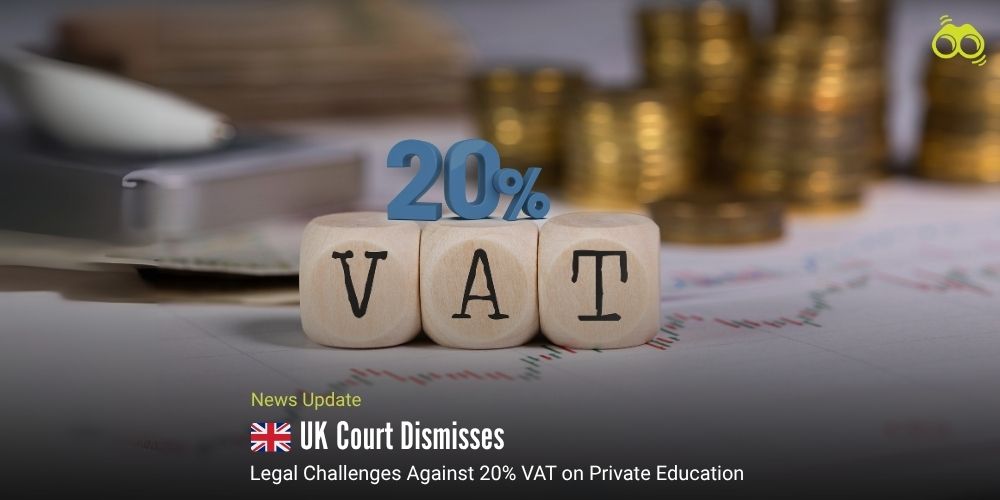Legal Battle Ends as High Court Dismisses Challenges to Private School VAT
Post-Brexit Tax Policy: High Court Confirms VAT on Private Schools is Lawful
In a landmark ruling, the UK High Court has dismissed multiple legal challenges against the government’s decision to impose VAT on private school fees, affirming the move as a rare exercise of post-Brexit legislative freedom. The judgment underscores how the UK’s departure from the European Union has broadened Parliament’s ability to shape domestic tax policies, with judges noting that such taxation would not have been permissible under EU law.
The 20% VAT on private school fees was introduced in January 2025, following the Labour Party’s pledge in its 2024 general election manifesto. According to government ministers, the revenue generated through this tax is intended to fund the recruitment of 6,500 additional teachers in state schools, reinforcing the government’s commitment to education reform and equitable resource allocation.
In their written judgment, Dame Victoria Sharp, Lord Justice Guy Newey, and Mr Justice Chamberlain rejected objections from parents and independent schools, which cited concerns over religious freedom, parental choice, and special educational needs. While acknowledging the difficulties faced by families with children requiring special education, the judges pointed out that similar challenges already affect over a million students in state schools, thereby validating the policy’s broader application.
Furthermore, the judges emphasised that although the legislation interfered with some claimants’ human rights, the government has broad discretion to weigh individual impacts against the public benefit of increased state funding. They clarified that the European Convention on Human Rights guarantees access to state education and the right to establish private schools, but does not oblige the state to facilitate private education, including on religious grounds.
Legal experts, including Robert Lewis of Mishcon de Reya, remarked that the case faced significant legal hurdles from the outset. As the policy had been democratically endorsed, debated in Parliament, and enacted into law, its successful challenge was highly unlikely. However, Lewis noted that the ruling offers some reassurance to independent schools, as it suggests that an outright ban on private institutions would likely violate the UK’s obligations under human rights law. Julie Robinson, chief executive of the Independent Schools Council (ISC), stated that the organisation is carefully reviewing the court’s judgment. She argued that the VAT policy represents an unprecedented tax on education, and its impact on both independent and state schools must be closely examined. The ISC has pledged to continue its efforts to hold the government accountable, ensuring the policy does not adversely affect education quality.
Meanwhile, the Christian Legal Centre has voiced its intention to support an appeal by claimants who argue that the tax infringes on their right to provide a private Christian education. Ultimately, the High Court’s ruling reinforces the government’s authority in shaping tax policy, while reaffirming its commitment to strengthening the state education system through increased funding and teacher recruitment.
Editor’s Note
The High Court’s decision to uphold VAT on private school fees is a defining moment in the UK’s post-Brexit policymaking, yet it raises serious concerns about its broader impact on education accessibility. While the government claims that the revenue will fund teacher recruitment in state schools, it is difficult to ignore the burden this policy places on parents who have long relied on private education to meet their children’s specific needs. Families with special needs students, in particular, may struggle with this added financial pressure, as state schools often lack sufficient resources to provide tailored support. The ruling reflects the government’s authority to exercise taxation powers post-Brexit, but it also highlights a disconnect between fiscal policy and educational equity. While independent schools have little legal ground to challenge the measure, the education sector must now grapple with its real-world consequences. The impact on parental choice, school affordability, and long-term educational outcomes cannot be overlooked.
As per Skoobuzz, if this policy is truly intended to benefit the education system, the government must ensure that its implementation does not come at the cost of diminished access to quality schooling.














0 Comments (Please Login To Continue)